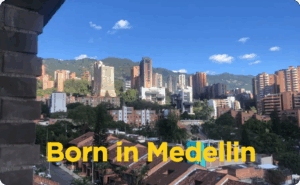哥伦比亚私人武装保安服务
在您前往马达加斯加旅行、执行任务或执行项目期间,我们可以为您提供以下所有服务:
1.最新且保养良好的四轮驱动车,包括燃料、保险和所有相关费用(用于科技和石油公司、大使馆、外交官和 VVIP,甚至 2 位总理。)
2.滑动门巴士或小型货车,包括燃料、保险和所有相关费用。
3.一位英语导游兼看护/联络员,在塔那(Tana)人脉广泛,北至迭戈(Diego),南至图莱亚尔(Tulear),甚至与马达加斯加军队、政府和G4S的将军们都有联系。此外,还有来自科技、石油、采矿、情报、海事、航空、反海盗、银行和救灾等领域的专家。
4.使用 1 辆运兵车(根据地区不同,每队士兵人数为 4-8 人)或2 辆突击车(军事专业人员)进行安全保护- 建议在城外 50 公里以上运输贵重工业货物或商品时使用,以及在哥伦比亚的某些地区使用。
5. 如果您需要最低限度的武装护送,也可以选择由军队与哥伦比亚的客户团队一起步行( 3 到 4 人)。他们只需要再一辆越野车即可完成这项任务。这些安保人员是当地的专业安保人员,而不是其他分包私人公司的人员。他们知道如何侦察和还击,并且更擅长追击,而不是像在“安全战区”那样“站岗放哨”。
6.精英私人保安部队:包括在南美洲和哥伦比亚的各个方向以及所有文化和背景下的大量荒野侦察和深度侦察经验,绑架,为野生动物和人口贩卖/有组织犯罪安插间谍,以及城市流动;其中包括为日本首相和前美国副总统候选人和美国海军陆战队领导提供旅行方面的严肃私人保镖;美国军事基地周边防御,国际刑警组织;绑架谈判;中非内战和冷战指挥中的撤离'欧亚情报背景。
这些特遣队至少雇佣10天,包括设置和考察。除非您提出要求,否则无需更多时间,之后将按比例按累进折扣收费。鼓励讨论和提前会面。
*您无需支付他们的伙食费,我们根据现行法律规定,为避免贪污,为每位成员安排了每天30美元的餐费。这笔费用由旅行部发放,他们不得向您索要食物、香烟、啤酒等……换句话说,除了费用之外,每天最多还要预算150美元。
**所有价格以美元计算,并需缴纳 5.5% 的税费。
CTT 聘请训练有素、专注专注的私人安保专业人员,他们的技能远超大多数哥伦比亚公司的标准门卫或夜间安保人员,态度也更为严谨,行动也更为隐蔽。我们不会将服务分包给缺乏经验的小型个人或公司。他们经验丰富,专注于实际安保工作而非安保场景,因此获得丰厚的报酬。他们深谙如何在实战中反击和追击,如何在哥伦比亚的城市景观中躲避侦查,如何在遭遇伏击时提升至危机状态,并且懂得在客户和货物面前保持低调。我们的车辆拥有严格的维护制度和优秀的驾驶员,我们还可以额外付费聘请侦察员、情报探员和联络员。
PERSONAL PROTECTIVE SECURITY SERVICES OVERVIEW
FOR TRAVELERS AND PERMANENT LOCATIONS ABROAD
(INCLUDED IN DELUXE & ELITE TIER PACKAGES FOR SPECIAL PROJECTS)
We are the actual suppliers for most top-10 security firms, same protocols and provisions, at typically 30-80% less of the cost of their sticker, which our staff and vendors wear to appear as if “they are running” things.
1. OVERVIEW
1.1 The provision of protective security services to personnel travelling or permanently posted is required when operating or visiting a location specified as requiring enhanced security and safety measures. Services could be required for a few days, several months or on a longer term contractual basis.
1.2 Resources for service are to be agreed for each task order. They shall be established based on the threat picture, operational requirements and the risk appetite. Services provided must be sourced to meet the contractual and task order requirements. The requirements are outline below for each Service is the minimum level acceptable, in addition to complying with the wider tender personnel and legal requirements within the SoW. Requirements and standards of delivery expected can be enhanced within the task order.
1.3 Overview of Personnel Protective Services that may be required for travellers and permanently based personnel in locations requiring enhanced security and safety measures:
1.4 The Contractor must be able to support services in semi and non-permissive environments, examples of locations are highlighted in Annex A of the SOW. Contractor must be clear in their bid where they do or do not operate, including highlighting if services are via local sub-contractors. They will also indicate which countries they and their sub-contractors are legally authorised to deliver service, including what permits are held, e.g. carriage of firearms.
2. PERSONAL SECURITY
2.1 The meet and greet service will:
- Have developed relationships with the airport security functions and management.
- Be able to meet arriving personnel airside.
- Be able to facilitate the traveller through immigration, including the use of VIP lounges and protocols.
- Be able to collect and arrange delivery of luggage to the traveller’s accommodation, including customs clearance as required.
- Be able to hand over personnel to any other supporting element.
- Be able to facilitate accommodation at the airport if other supporting elements are delayed or there is a change in the threat picture.
- Collect travellers from the departures drop zone and facilitate their passage through the airport until the departure lounge. This includes seeking priority and use of VIP lounges and protocol as required.
- Be able to arrange airport side access and drop off for VIPs and in emergency cases.
2.2 The driver and soft skin vehicle will be used for travellers in semi-permissive locations in a similar theme to that offered by hotel transportation. The service will:
- Drivers will hold an appropriate driving licence for the vehicle and have extensive driving experience in moving business executives.
- It is desirable for the drivers to hold advance driving qualifications and a medical qualification.
- Drivers will have extensive ground knowledge and understanding of road rules and regulations.
- Drivers will not have a criminal record or repeat driving violations.
- Drivers will be fit to drive having not consumed alcohol or drugs and be suitably rested to complete the task.
- Drivers will drive safely at all times and abide by speed limits.
- Drivers will understand protocol requirements and hold the confidentiality of any overheard conversation.
- Vehicles are to be serviceable, clean and of a standard befitting the requirement e.g. saloon or 4×4 at an executive level. On occasion the use of low-profile vehicles may be requested.
- The vehicle shall have a medical kit (including pressure bandages and tourniquet) and full running kit and spare tire.
- Provide a security update on any security situation changes to the client.
- Be connected to local security alerting network.
2.3 The local logistical and administrational support will be able to support:
- Visa applications.
- Accommodation or venue bookings.
- Property searches.
- Attend low level meetings to arrange logistical requirements.
- Shopping for food and water, especially during changing security situations.
- Support custom clearance for Import/export of goods e.g. weapons systems or vehicles.
- The support will:
- Have developed relationships with the country’s Ministry of Foreign Affairs and Ministry of Interior.
- Be able to speak the local languages and English to a proficient standard.
- Understand protocol skills.
- Be proficient in communicating in English via email
- Have a high degree of confidentiality.
- Have communication systems via GSM, Satellite and the internet.
- Translation skills desirable
3. MOBILE PROTECTIVE SECURITY SERVICES
3.1 Mobile protective security services will provide the provision of armed/unarmed Close Protection (CP) Services for temporary or permanent requirements within semi or non-permissive environments. The approach and make-up of the required Service support will be described in the Purchase Task Order (PTO) and supporting its documentation. The Service must be able to support all of the following:
- Driver/escort and B6 armoured vehicles.
- Unarmed Host Country Nationals (HCN) Close Protection Team (CPT) with soft skin or B6 armoured vehicles.
- Armed HCN CPT with NATO countries and/or non-NATO European countries (NNMSC) Team Leader (TL), with B6 armoured vehicles.
- Unarmed or Armed Third Country National (TNC) CPT with NNMSC TL, with B6 armoured vehicles.
- NNMSC (only) CPT, with B6 armoured vehicles.
3.2 Drivers will comply with paragraph 2.2 requirements, in addition they shall:
- Have undertaken an armoured vehicle driving course.
- Have completed a defensive driving package.
3.3 Armoured vehicles shall:
- Be under 5 years old, fully registered within the country of use.
- Be serviceable and maintained to manufacturer’s recommendation.
- Have a minimum armoured level of B6, as per ERV 2010 – Blast protection certification.
- Comply with a current NATO member state’s manufacturers standard or equivalent, such as:
- Vehicle Security Advisory Group (VASG) – A British Standard for armoured car construction and testing.
- National Institute for Justice (NIJ) – The American National Institute of Justice certification for armoured vehicles.
- BR – DIN EN 1063.
- FB – DIN EN 1522/23.
- Have a satellite enabled tracking and communication system.
- Carry securely:
- Emergency B6 entry tools.
- Advanced medical trauma bag (AED desirable).
- Spare wheel and change equipment.
- Emergency rations and water.
3.4 Close Protection Team Service shall:
- Be compliant with international and local laws and legislation governing the use of weapon systems and the protection of civilians. Proof shall be presented in the bid and within task orders service delivery.
- Have clearly defined rules of engagement (RoE) that meet host nation (within the country that services are being delivered) and international law requirements.
- Be able to undertake threat and risk assessments prior and during Service delivery.
- Provide threat briefings prior to all tasks, both mobile and static
- Be able to conduct route and venue reconnaissance.
- Be surveillance aware.
- Be able to undertake operational planning and produce comprehensive plans.
- Apply foot close protection drills.
- Apply mobile close protection drills.
- Have at least one team member with a trauma medical certification.
- Be a cohesive and well drilled team.
- Undertake frequent and diverse CP related training (e.g. close protection drills, range practices, client recovery etc…), training records of achievement are to be held for 3 years.
- Be able to undertake searching of a people, vehicles and buildings.
- Be able to react to and manage critical incidents.
- Have a CPT TL with a minimum of ten years’ experience within CP.
- Have developed Action On’s to deal with foreseen events.
- Be able to provide a 24/7 coverage.
- Have an operations room monitoring and ongoing movement and events, capable of managing alerts and incidents.
3.5 Close Protection Officers (CPO) shall be professionally trained, they will:
- Have formal close protection training and preferred to hold a company or national close protection licence.
- Hold a First Person on Scene (FPOS) or equivalent standard medical certification.
- Have excellent inter-personal and client protocol skills.
- Have excellent ground knowledge of the operational area.
- Be able to confidently brief VIPs and have a high level of protocol skills.
- Be proficient in the use of firearms, including Rules of Engagement and carriage requirements.
- Have an understanding of conflict management, especially conflict avoidance; defusing of conflict; conflict resolution.
- Have received training on all equipment that they are using.
- Have a firm understanding of CP tactics for the location specific security environments.
- Be able to drive the vehicle in use.
- All CPO personal equipment (e.g. comms, weapons, etc…) shall be covered within the daily rate of a CPO.
3.6 In-Country Security manager. The in-country security manager/coordinator will be able to:
- Have a ground network of local security incident alerting.
- Be able to conduct effective liaison with local stakeholders, especially law enforcement, intelligence service and medical service providers.
- Be able to manage the overall security delivery within the area of operations.
- Be able to manage critical security incident and crisis situations.
- Be the key interface with POC, having clear procedures of when to contact the POC.
































